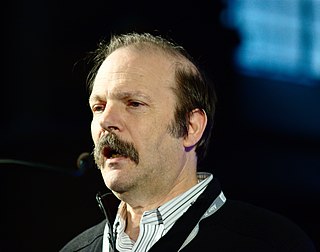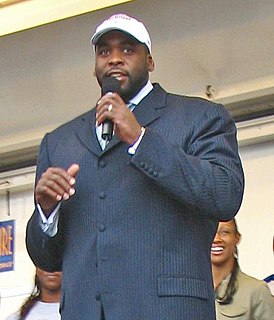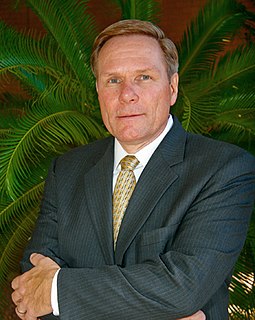A Quote by Moshe Vardi
Are machines getting more and more powerful? Absolutely. It's been going on since 1940. We are making progress, and for many people, it will be a lifesaver.
Quote Topics
Related Quotes
In those same 10 years, women are getting more and more of the graduate degrees, more and more of the undergraduate degrees, and it's translating into more women in entry-level jobs, even more women in lower-level management. But there's absolutely been no progress at the top. You can't explain away 10 years. Ten years of no progress is no progress.
I think that the artificial-intelligence people are making a lot of noise recently, claiming that artificial intelligence is making huge progress and we're going to be outstripped by the machines. But, in my view, this whole field is based on a misconception. I think the brain is analog, whereas the machines are digital. They really are different. So I think that what the machines can do, of course, is wonderful, but it's not the same as what the brain can do.
But the broader lesson of the first Industrial Revolution is more like the Indy 500 than John Henry: economic progress comes from constant innovation in which people race with machines. Human and machine collaborate together in a race to produce more, to capture markets, and to beat other teams of humans and machines.
As a matter of fact since Barack Obama has been president it is more overt - I believe - than it's been since the 1940's and 50's and so I am not surprised by it. I think it's an excellent teaching tool, particular for my sons and our people to understand that we still have to build within our community. We still have to work with one another. We still have to connect even with people outside of this country.
Machines already are much smarter than us at so many things. I mean, try to multiply two 10-digit numbers with each other or, you know, sift through a thousand documents. So there's lots of things that machines are better at including in mental task than us. There's many more that they're not as good at, but the direction is pretty obvious and the progress is clear.
One of the problems with industrialism is that it's based on the premise of more and more. It has to keep expanding to keep going. More and more television sets. More and more cars. More and more steel, and more and more pollution. We don't question whether we need any more or what we'll do with them. We just have to keep on making more and more if we are to keep going. Sooner or later it's going to collapse. ... Look what we have done already with the principle of more and more when it comes to nuclear weapons.
I have been motivated by this idea since I was a kid that if we invented machines that were created in the way that people are - were aware, have free will, inventive machines, machines that would be geniuses - potentially, they could reinvent themselves. They're not just applying it to other things - they could actually redesign themselves.
Although humans today remain more capable than machines for many tasks, by 2030 machine capabilities will have increased to the point that humans will have become the weakest component in a wide array of systems and processes. Humans and machines will need to become far more closely coupled, through improved human-machine interfaces and by direct augmentation of human performance
Technology has a shadow side. It accounts for real progress in medicine, but has also hurt it in many ways, making it more impersonal, expensive and dangerous. The false belief that a safety net of sophisticated drugs and machines stretches below us, permitting risky or lazy lifestyle choices, has undermined our spirit of self-reliance.
I think what you have to realise is that our generation is the first generation since its sexual awakening has come into the world and realised that sex can mean, ultimately, death. That has had a very serious effect on social morals and on the way people deal with each other. As we approach the millennium, people are getting more and more confused and contact is getting more and more sanitised, so there's a lot more mental games being played.





































